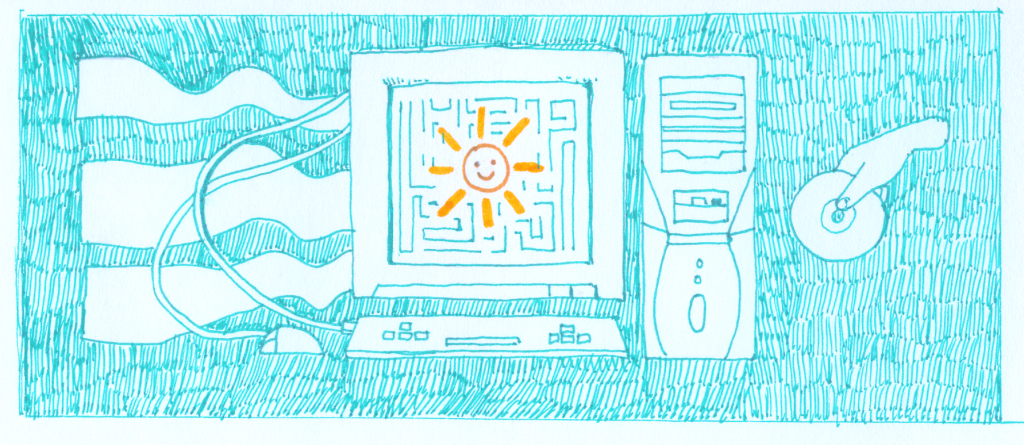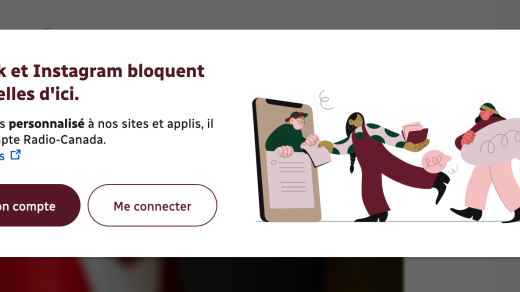A Closer look at the Complex Relationship(s) between Children and Computers, and how these Evolve over time
I can’t remember the first time I saw a computer, nor the first time I interacted with one. In my memory it was an object equal to a bed, or a lamp. It had a function, but not one I consciously considered from the age of one to five. My siblings and I would be scolded if we played too close (so it was apparently important), and we weren’t allowed to take it apart (a rule that devastated us). For a time, my interest in this machine bordered closer to annoyance than anything else, that is, until I played on it my first game.
Now to reflect on a lifetime relationship with ‘the computer’ in all its forms and capacities is tough, and that’s obviously not what I will be doing in this little blog post. That being said there are some important and subtle shifts in how my relationship with this device evolved. Particularly how it evolved from a device of ‘play’, to one for sharing and accessing information (communication).
The Household Computer
I would have to be bold to assume everyone’s relationship with the computer started and shifted the same way mine did. However I do believe that my Gen X/ Millenial colleagues may recognize that our age group is one of the first to have really grown up alongside digital media devices since birth. This puts us in the unique position of being able to compare our current experiences with digital technology, to what it was like from our childhood perspective.

I want to focus very specifically on the household computer, and how I remember it as a child. I mentioned earlier that the computer object itself was not so important to me, rather, it was the game program inside that was of true significance. While I don’t remember my first computer interaction, I do remember my first game. My parents had bought it to help us develop language, math, science, geography and other skills. It was a little educational game which was inserted via a CD and voila. I remember liking it, though the connection with homework and school was a bit less thrilling.
When my siblings and I were allowed more time on the computer, that’s when the real excitement for it began to develop. Not necessarily for the computer, but the program we were learning to play with; good old windows 98, (later Windows 2000).
My siblings and I would each get 20 minutes of computer time per day, and all of it would be spent on MS paint, a program I’m sure many of you are familiar with. Something about creating silly colours and lines, filling things in and erasing and redrawing, was immensely fascinating to us. The impermanence of our actions inside this computer program allowed for endless play. We were the active creators, inputting information, and the program was our toy.
However, even MS paint had its limits, and soon our attention was drawn to something else. Specifically:
THE INTERNET !!!
The internet gave us the feeling of access to endlessness. Google was the search giant, though Yahoo came in as a close second. This was a period of time where the most exciting thing was to look up your own name, or check your yahoo email inbox (something my parents liked to encourage). And those 20 minutes of computer time had us eagerly scouring these search engines for what funny information we could find and tell our friends.
The internet had much to offer and soon we found ourselves in the world of multiplayer games. We would bring our friends home and they, (using the w, a, s, d, keys), would battle or help each of our avatars advance. One favorite was bomberman, where together with your friend, you must beat the computer.
This is where the computer program changed from passive provider of information or visual fun, to active, in the moment participator in your experience of it. Suddenly the program had unpredictable elements, forces outside our direct control. The program was an active playmate in our household, and it never got tired. While the computer was still an ‘it’ object, the programs became increasingly personified. We would give google and yahoo identities and characteristics. Our enemies in bomberman we would give their own voices and personalities. As our intimacy and relationship with individual computer programs developed, so we would give them their own defining characteristics. Perhaps as a way to order their significance in our minds.
What about Now?
When we got older, as you may suspect, the computer developed from a tool of infinite play, into one for information and education. Through schooling especially much of the emphasis was placed on communication, writing, presentations… and using computer programs to complete such tasks. A bit more sober than what it used to be. Games and entertainment are still a huge (if not the main) part of digital media but have become linked to social media accounts. Everything is about sharing what you’re doing. Even the dynamic between the device and the programs changed. No longer a big block in your living room, the computer now travels with you. In your backpack or your pocket, there is an accessibility and ease of communication that wasn’t there before. Perhaps now more than ever, the device and what it provides is truly endless.
The computer has always been a tool, providing games, knowledge information etc., but I can’t help but wonder whether we as the user have become more passive as the programs become more advanced.
Going from mixing colours in MS paint to scrolling an endless sea of images and videos there seems to be some change in input vs. output. More than anything, digital media has become a tool for information, and spreading information, which I would argue is a definitive shift from what the computer meant to me as a child, where I felt actively in control over what I wanted to see. New algorithms, data mining, advertisements and other tools seem to have altered the users autonomy (or at least the feeling of autonomy).
How do you even begin to Unpack all of this?
Although this entry scrapes a tiny surface of what digital media meant for me then vs. now, reflecting even a little bit on this issue opens up interesting and somewhat abstract questions about the computer as a toy or tool, the illusion of autonomy, and ultimately how relationships with these kinds of digital programs grow, change, develop and ultimately become increasingly intimate.
This is a very self centered blog post and perhaps it has nothing to do with your own experiences (if that is indeed the case I’d love to hear your own thoughts on this topic!), however, perhaps there are more of you who can relate to this roughly put together outline about growing up with digital media devices accessible and at home. I’ll be curious to know if you would apply any significance to the shift I have considered, and whether you would agree with it. To understand how digital technologies have affected us in the past and how they affect us now, means we may come closer to understanding what they’ll be to us in the future.
Anna Hijmans



Recent Comments